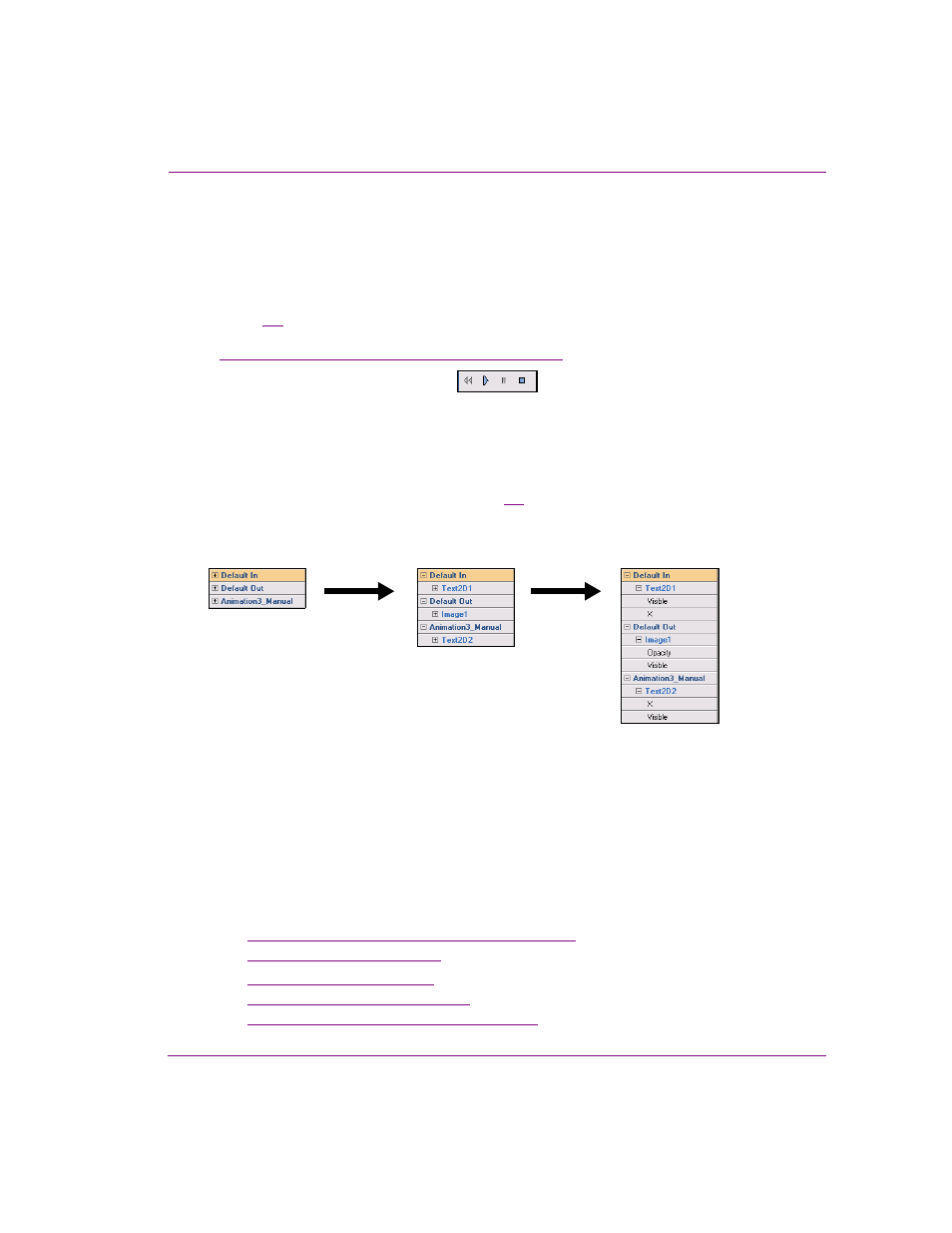Preview mode controls, Animation tree and animations – Grass Valley Xstudio Vertigo Suite v.4.10 User Manual
Page 152

Xstudio User Manual
7-9
Animating scene objects
Preview Mode controls
It is often useful to preview the playout of the scene animation during the animation creation
process to ensure that the animation is behaving as intended. When used with Xstudio’s
P
REVIEW
mode, the Animation Editor’s Preview Mode controls allow you to play out a
preview of the animation on a connected device.
Figure
shows that only the P
LAY
and S
TOP
buttons are currently enabled in Preview
Mode. Instructions for publishing and previewing a scene animation are provided in
“Previewing and scrubbing the animation” on page 7-32
Figure 7-4. Preview Mode controls
Animation Tree and Animations
The Animation Editor helps you create and manage scene animations using an expandable
tree view called the Animation Tree. As figure
demonstrates, the Animation Tree
organizes the main components of the scene’s animation into three levels: animations,
objects, and properties. Additionally, you can add keyer channels and command channels
to the animations in the Animation Tree.
Figure 7-5. Animations are organized into an expandable tree view
The Animation Tree is equipped with four default animations: Default In, Default Out,
Page In and Page Out. As described below, these default animations are automatically
triggered to start by calling and clearing the scene/page, respectively. Additional animations
can be added to the Animation Tree, however, these animations are called manual
animations because they must be explicitly called using the Action Editor’s A
NIMATION
action and an associated event.
The following topics provide a more detailed description of the elements belonging or
related to the Animation Tree:
•
“Default, Page and Manual animations” on page 7-10
•
•
•
“Command Channels” on page 7-12
•
“Animation Tree’s Context menu” on page 7-14
Animations
Animations & Objects
Animations, Objects, & Properties
